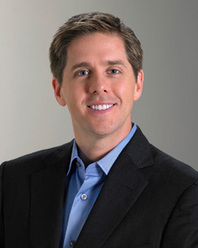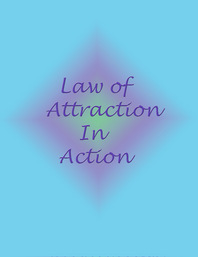 I’m delighted to have Matthew B. James, Ph.D., international trainer, lecturer, educator, and president of American Pacific University and the Empowerment Partnership as my guest today. His work is dedicated to creating personal transformation by teaching Huna, the ancient science of consciousness and energy healing, using cutting edge therapeutic techniques.
I’m delighted to have Matthew B. James, Ph.D., international trainer, lecturer, educator, and president of American Pacific University and the Empowerment Partnership as my guest today. His work is dedicated to creating personal transformation by teaching Huna, the ancient science of consciousness and energy healing, using cutting edge therapeutic techniques.
I recently learned the amazing Hawaiian technique of ho`oponopono and it’s been almost miraculous for changing the negative energy with people I’m having problems with. I planned to share my experience and will in a future post. I use it with people from afar. Dr. James gives suggestions for forgiving and letting go so you can have true closure on something that bothers you. That’s a great way to show yourself love and find peace.
By Dr. Matthew B. James
Have you ever felt like you were holding a grudge against someone, even after you had consciously tried to forgive?
All of us, at one time or another, need to forgive. It may be our spouse or a friend. It may be a co-worker or a former employer. After the mortgage and financial crises, some people may harbor resentment against real estate or stock brokers they feel gave them bad advice. In our hearts we know that holding onto negative feelings against others only harms us. So why is it so hard to forgive?
Huna, the ancient Hawaiian system of my lineage and life experience, emphasizes the need to forgive others and seek forgiveness and provides practical ways to do it.
In Huna, the concept of making things right is called pono. Though pono does not have a specific English translation, the closest word is right — not as in “I’m right, you’re wrong,” but right with each other and the situation. Pono is a feeling of congruency and calmness to the extent that nothing needs to be said.
What can we learn from the ancient Hawaiians about forgiveness? The process I use and teach comes from ho`oponopono, which literally means to make something doubly pono.
In doing research for my dissertation, I found the process works today just as it has for thousands of years. The research showed that those who engaged in ho’oponopono experienced a statistically significant reduction in unforgiveness compared to a control group, which showed no such change.
This was the first time the Huna method has been studied as a process-based approach to forgiveness. Upon validating ho’oponopono as an effective therapeutic forgiveness method, I believe the approach holds promise for improving relationships and mental health.
So how do we balance our approach to forgiveness so that we (1) forgive, (2) release the negativity, and (3) still learn from the event?
To take the first step in ho`oponopono, we need to rethink the process of forgiveness. In western thinking, our first approach upon wronging another person is often to say “I’m sorry.” However, an apology is only one-sided, a statement that asks for no response from the one harmed.
Huna understands that it takes two to tango. So the first step is to ask for forgiveness. The second is for the other to give forgiveness.
I’ve had heated arguments with people that definitely required an apology afterwards. But it’s like a meal that doesn’t last: Within a short time after all the apologies and making-up, either I or the other person bring it up again “this is just like the last time….” So even though we were sorry, we weren’t done and complete.
Getting to pono is different. When you are pono with someone, nothing else needs to be said or done. You are right with one another.
To become truly pono with someone, you first ask for and offer forgiveness for anything you may have done. Saying, “I forgive you; please forgive me, too” brings the other person into the picture and gets them actively involved. Rather than merely “being sorry,” a two-way street of forgiveness is formed.
Next, allow the space for you and the other person to say everything that needs to be said. Express what needs to be expressed without hiding or holding back. When you have both shared your thoughts and feelings, you should experience a sense of “I have said it all, and I am done.” Once again, give and ask for forgiveness from one another.
Finally, move forward. Huna says that we must learn from all of our experiences in life. Once you are pono, ask yourself: what do I need to learn from this event that will allow me to continue to be pono?
Learning is positive, about the self and future based. Take this learning with you to help you change your behavior and thinking, make better decisions, and to create the relationships and situations you desire.
A major advantage of this approach to forgiveness is the ability to have a fresh start. Although you may experience future difficulties with the same person, once you are pono, you won’t bring baggage from the past into new situations. You will begin new interactions from a place of being pono and with the insight from the learning you received.
To forgive and to never forget is to never forgive in the first place. Holding on to the negativity and even the memory of the negativity prevents true forgiveness and only hurts you. We owe it to ourselves to experience true forgiveness – to become pono.
=================
Matthew B. James‘ doctoral dissertation is titled: Ho’oponopono: Assessing the Effects of a Traditional Hawaiian Forgiveness Technique on Unforgiveness. To learn more about Dr. James and Huna or to contact him visit Huna and check out his book, The Foundation of Huna – Ancient Wisdom for Modern Times.
Please leave comments under my posts so we can stay connected.

